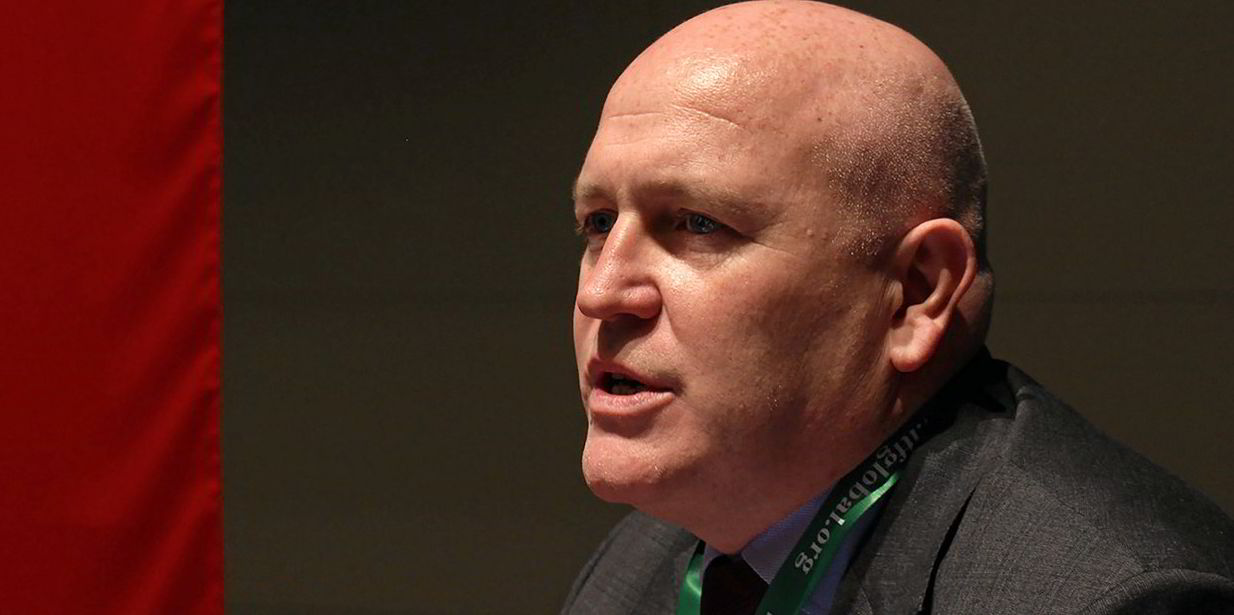Cyprus-based Elvictor Group is targeting expansion after becoming the world's only publicly listed crew management company.
The Limassol and Athens-based family company secured a listing in the US over-the-counter market last year after a reverse merger with a dormant shell company.
Chief executive Konstantinos Galanakis told TradeWinds he and his family will have no private ventures, once all business is moved to the new Elvictor Group Inc.
Since October, Elvictor has been in the process of gradually transferring crewing contracts out of the private and into the public vehicle, a process that has been slowed by Covid-19, US and Greek bureaucracy, and bank red tape.
Elvictor aims ultimately at a Nasdaq listing, and Galanakis said he intends to use the public platform plus digital technology to market his company's transparency to customers and to investors.
"The purpose of entering the stock exchange is to show that technology, transparency, and ethics are the new weapons for the shipping industry," Galanakis said.
In 2019, Elvictor gained the public platform through a reverse merger with a penny-stock company then called Thenablers, which had aimed without much success at selling marketing services to companies looking to outsource to new international markets.
Last year, ahead of its over-the-counter listing under the Elvictor name, it recruited some well-known shipping names as independent directors, including former Bureau Veritas executive Lambros Chahalis and ship financiers George Xiradakis and Lampros Theodorou.

In an industry that he described as having "many grey zones", he said he will do all shipping business under the public entity with no privately controlled "front companies".
"I can prove things can be done better and more ethically with higher technology," Galanakis said. "Everything should be crystal clear, like the aerospace industry. Everything should be recorded."
For the time being, the company is holding back on announcements about possible new ventures and investors pending formal announcements.
But Galanakis was keen to underscore a number of ongoing digitalisation initiatives, including intranets for shipowner customers and for seafarers, which make company-wide operations more transparent.
"Everything is seen. Even my mistakes are seen," said Galanakis.
Another operational innovation is an automated AIS-based system for checking seafarer books that are sometimes fraudulently stamped by national authorities, purporting to show that an applicant joined a ship at a time when it was actually at sea.
Unfortunately, Galanakis said, digital methods of verification do not work as well on dodgy shipowners as on dodgy crew.
Elvictor has an in-house system for making decisions about new customers, but it is not digital. Shipowners who have payment problems still have to be vetted the old-fashioned way, by word of mouth from other suppliers and from banks.
"In 2020, 12 new customers approached us and we took two," he said. "The 10 others, the banks told us, I don't know if they are going to pay you or not."
Elvictor Group is a crew management company backed by the Galanakis family.
Founded: 1977
Key leaders: Chairman and founder Stavros Galanakis, chief executive Konstantinos Galanakis, Panagiotis Tolis, chief investment relations officer and chief financial officer Theofylaktos Oikonomou.
Headquarters: Headquarters in Cyprus with main operational office in Athens.
Global footprint: Branch offices in Romania, Ukraine, Georgia, Russia, Egypt, India, Sri Lanka, Myanmar and the Philippines.
Crew: 4,500 seafarers of 12 nationalities on board 300 ships.
Galanakis' father, former shipowner Stavros Galanakis, founded Elvictor in 1977, and remains its chairman. In the past, the family has owned small bulkers and tankers, but sold all but one ship in early 2008 ahead of the global financial crisis and disposed of its last vessel in 2010.
The private and public companies together have about 35 shipowner customers, mostly Greek but also Italian and US based. Elvictor is targeting mainly European owners as new customers, Galanakis said.
Its crewed fleet now numbers some 280 bulkers, tankers, containerships and gas carriers with 4,500 seafarers.
That is about 20 less than a few months ago, when the company parted ways with certain customers, including big shipowning names, that had problems making timely payments. Galanakis declined to name the problem owners.
"We don't have a problem [with receivables] any more," he said. "We cleaned it up. It is better to have fewer customers and not keep on calling them for payment."
But he said Elvictor's total crewed fleet could grow by 50 to 100 ships because of current customers' fleet expansion plans in a good market.
About 85% of Elvictor's seafarers come from Russia, Ukraine, the Philippines and Georgia, where Elvictor is the biggest crewing company. Russians have proved best for large tankers, and Georgians for chemical and products tankers and increasingly bulkers.
Galanakis said Elvictor has a retention rate of over 95% among its seagoing staff.





